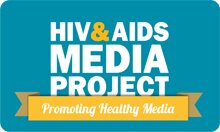Workplace Rights
There are various laws that protect individuals from discrimination in the workplace.
3.1 Laws
1. The SA Constitution (HTML)The Bill of Rights says:
- everyone has the right to fair labour practices
- everyone has the right to equal treatment
The Labour Relations Act prevents employees from being discriminated against because of a disability (which includes HIV/AIDS).
3. The Employment Equity Act (EEA) (HTML;The Employment Equity Act specifically prohibits unfair discrimination of people at work on the grounds of their HIV status. It also prohibits employers from testing for HIV/AIDS in the workplace, unless permission is granted by the Labour Court.
4. The Occupational Health and Safety Act (HTML;Employers are responsible for ensuring that their employees are not at risk of HIV-infection at work. Employers must provide rubber gloves and train staff to use universal precautions when dealing with blood.
5. Compensation for Occupational Injuries and Diseases Act (COIDA) (Employees have a right to compensation if they get infected with HIV in a workplace accident.
6. The Medical Schemes Act No 131 of 1998 and Regulations: Government Gazette 20556 (HTML)The Medical Schemes Amendment Act of 1998 prohibits discrimination based on "state of health". People with HIV/AIDS are entitled to reasonable care with "minimum level benefits" including the treatment of opportunistic infections. The schemes do not have to provide antiretroviral drugs.
3.2 Rights in the Workplace
The Employment Equity Act includes the Code of Good Practice on Key Aspects of HIV/AIDS and Employment which offers guidelines to employers to ensure that people who are HIV-positive are not discriminated against in the workplace.
| What an employer cannot do | |
| An employer cannot: | Relevant legislation |
| Test a person for HIV unless deemed justifiable by the Labour Court | Section 7(2) of the Employment Equity Act |
| Demand to know a person's HIV status when applying for a job, in their employment or when they take sick leave | Common law and Section 14 of the Constitution of South Africa Act, No. 108 of 1996 |
| Disclose an employee's HIV status to anyone without consent | Common law and Section 14 of the Constitution of South Africa Act, No. 108 of 1996 |
| Dismiss an employee arbitrarily for being HIV-positive |
|
| Unfairly discriminate against an HIV-positive employee | Section 6(1) of the Employment Equity Act |
| Provide an unsafe workplace where the risk of occupational exposure to HIV is not minimised | Section 8(1) of the Occupational Health and Safety Act, No. 85 of 1993 and Section 2(1) and Section 5(1) of the Mine Health and Safety Act, No. 29 of 1996 |
| Source: Code of Good Practice on Key Aspects of HIV/AIDS and Employment | |
3.3 Employment and the "Capacity to Work"
If an employee is unable to do their job properly because of their illness, they can be dismissed ( ![]() Section 188(1)(a)(i) of the Labour Relations Act, No. 66 of 1995). An employer must follow guidelines when dismissing an employee because of their poor work performance.
Section 188(1)(a)(i) of the Labour Relations Act, No. 66 of 1995). An employer must follow guidelines when dismissing an employee because of their poor work performance.
3.4 Legal Recourse
A person can argue their case at the Bargaining Council or Commission for Conciliation, Mediation and Arbitration (CCMA) if they have been dismissed or discriminated against unfairly. Disputes can also be referred to the Labour Court.






